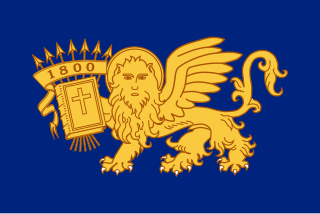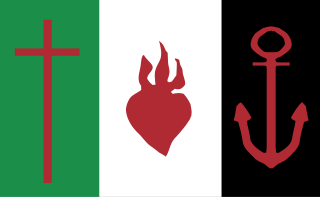
A senate is a deliberative assembly, often the upper house or chamber of a bicameral legislature. The name comes from the ancient Roman Senate, so-called as an assembly of the senior and therefore considered wiser and more experienced members of the society or ruling class. However the Roman Senate was not the ancestor or predecessor of modern parliamentarism in any sense, because the Roman senate was not a de jure legislative body.

The Wisconsin State Assembly is the lower house of the Wisconsin Legislature. Together with the smaller Wisconsin Senate, the two constitute the legislative branch of the U.S. state of Wisconsin.
A legislator, or lawmaker, is a person who writes and passes laws, especially someone who is a member of a legislature. Legislators are often elected by the people, but they can be appointed, or hereditary. Legislatures may be supra-national, national, sub-national, such as provinces, or local.

The Tennessee Senate is the upper house of the U.S. state of Tennessee's state legislature, which is known formally as the Tennessee General Assembly.

The Tennessee General Assembly (TNGA) is the state legislature of the U.S. state of Tennessee. It is a part-time bicameral legislature consisting of a Senate and a House of Representatives. The Speaker of the Senate carries the additional title and office of Lieutenant Governor of Tennessee. In addition to passing a budget for state government plus other legislation, the General Assembly appoints three state officers specified by the state constitution. It is also the initiating body in any process to amend the state's constitution.

The Septinsular Republic was an oligarchic republic that existed from 1800 to 1807 under nominal Russian and Ottoman sovereignty in the Ionian Islands.
Métis Nation—Saskatchewan is a federally-recognized government that represents Métis people in the province of Saskatchewan, Canada. It is affiliated with the Métis National Council. Glen McCallum was elected as president in 2017 and reelected in 2021.
The Greek Constitution of 1822 was a document adopted by the First National Assembly of Epidaurus on 1 January 1822. Formally it was the Provisional Regime of Greece, sometimes translated as Temporary Constitution of Greece. Considered to be the first constitution of Modern Greece, it was an attempt to achieve temporary governmental and military organisation until the future establishment of a national parliament.
"All the indigenous inhabitants of the Greek Territory who believe in Christ are Greeks."
In the modern history of Greece, starting from the Greek War of Independence, the Constitution of 1975/1986/2001 is the last in a series of democratically adopted Constitutions.

The Areopagus of Eastern Continental Greece was a provisional regime that existed in eastern Central Greece during the Greek War of Independence.

The President of the Hellenic Parliament is the presiding officer of the Parliament of Greece. The president's term coincides with the term of the assembly,and is chosen by a vote during the opening session, after each legislative election. Following is a list of speakers of the Hellenic Parliament or other national legislative bodies such as the Greek Senate, from the time of the Greek War of Independence till present. The official order of precedence ranks the speaker of the Hellenic Parliament in the 3rd position, after the President of the Republic and the Prime Minister.

The Constitution of the Republic of North Macedonia is a codified constitution outlining North Macedonia's system of government and basic human rights. It was adopted in the Parliament of the then-Republic of Macedonia on 17 November 1991.

The Roman Assemblies were institutions in ancient Rome. They functioned as the machinery of the Roman legislative branch, and thus passed all legislation. Since the assemblies operated on the basis of a direct democracy, ordinary citizens, and not elected representatives, would cast all ballots. The assemblies were subject to strong checks on their power by the executive branch and by the Roman Senate. Laws were passed by Curia, Tribes, and century.

The Greek Senate was the upper chamber of the parliament in Greece, extant several times in the country's history.

The Senate of Western Continental Greece was a provisional regime that existed in western Central Greece during the early stages of the Greek War of Independence.
The Greek civil wars of 1823–1825 occurred alongside the Greek War of Independence. The conflict had both political and regional dimensions, as it pitted the Roumeliotes, who lived in mainland Greece, and shipowners from the Islands, primarily Hydra island, against the Peloponnesians or Moreotes. It divided the nation, and seriously weakened the military preparedness of the Greek forces in the face of the oncoming Egyptian intervention in the conflict.

The chaplain of the United States House of Representatives is the officer of the United States House of Representatives responsible for beginning each day's proceedings with a prayer. The House cites the first half of Article 1, Section 2, Clause 5 in the United States Constitution as giving it the authority to elect a chaplain, "The House of Representatives shall choose their speaker and other officers".

The Counties of Kenya are geographical units created by the 2010 Constitution of Kenya as the new units of devolved government. They replaced the previous provincial system. The establishment and executive powers of the counties is provided in Chapter Eleven of the Constitution on devolved government, the Constitution's Fourth Schedule and any other legislation passed by the Senate of Kenya concerning counties. The counties are also single-member constituencies which elect members of the Senate, and special woman members to the National Assembly.

A general election was held in the U.S. state of Illinois on November 8, 2022. The elections for United States Senate and United States House of Representatives, Governor, statewide constitutional officers, Illinois Senate, and Illinois House were held on this date.

The Illinois Public Pension Amendment was a proposed amendment to the Illinois state constitution. On November 6, 2012, Illinois voters rejected it in a statewide referendum.













